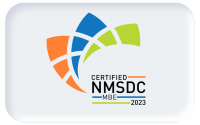Remote working is the new normal for many employees at corporations today. According to the NY Times, 43% of people in the US last year said that they work from home at least part of the time. This change has had a lot of impact on the workforce and the roles we hold today. The two largest, as I see it, are that the concept of ‘work’ hours and ‘off’ hours have morphed, and the places where we can work have expanded.
Off vs On Hours
 I do not work 9-5. Generally, I think I work from 8am to about 9pm. And I definitely do not work Monday through Friday, it’s more like Monday – Sunday with some days being a lot lighter than others (weekends) and some being a lot heavier (weekdays).
I do not work 9-5. Generally, I think I work from 8am to about 9pm. And I definitely do not work Monday through Friday, it’s more like Monday – Sunday with some days being a lot lighter than others (weekends) and some being a lot heavier (weekdays).
Recently I got annoyed by a co-worker who asked for a meeting at 7:30 am, and I told her that it was not cool to try to schedule a meeting for that early. But I got annoyed not for the reason you think. Not just because 7:30 is way, way, way too early to have a meeting where I’m expected to pay attention and participate. I got annoyed because I consider 7:30 as part of my ‘off’ time, part of my family time, part of my ‘me’ time. I felt justified saying that, because I will often be working until 10 or 11 at night. I consider that ‘work’ time. I actually work day and night. I do not work mornings. Well, at least, not early mornings, when I can help it.
I tell the above story to convey this message – I am a remote employee. I work whenever I need to, and I try not to work when I don’t have to so that it all balances out. I don’t get upset if you ask to meet on a Sunday. I don’t get upset if you ask to meet at 7pm. I do get upset if you ask to meet at 8am on a Tuesday. Unless you give me breakfast, then I’m all over that.
Being a remote employee has changed my 40 hour work week into a 60 hour work week just by the nature of being remote, and I am okay with giving those extra hours because of the freedom I am given during those traditional 40 hours. What’s changed the most in the last 5 years is how OK with it my family and friends are with it now, because 5 years ago, when I had already been remote for a long time, they used to get super annoyed when I would leave a table or step aside from an event to ‘do work’. Now, as the percentages of people who have the ability to work from home has grown, my family and friends being among those ranks, they also now enjoy/suffer the privileges of the new remote lifestyle.
With eDiscovery often requiring work to be done all hours of the day and night, having a remote workforce can be a big advantage.
“It’s opener, out there, in the wide, open air.” ― Dr. Seuss, Oh, The Places You’ll Go!
The increase in remote roles has also allowed people to get jobs they otherwise would not have qualified for – not due to lack of skills or experience, but solely because they lived in a different town or state.
Allowing people to work remotely takes a certain level of trust on the side of the company or corporation employing that person. As an employer, you have to trust that your employee will not slack off, will do the work you are asking them to do and will maintain the levels of security and confidence that they’d have to comply with if in the office.
It’s a big trust. But it can have a big impact on employee morale and improvement of work/life balance. Even though my 40-60 hour work week comment kinda contradicts that, it’s true.
Remote Review
We recently launched Remote Review as one of the models we offer for outsourced document review. The idea is that there are non-hired attorneys all across the country, and in choosing to open a document review ‘shop’ in just two or three major cities, we are missing out on some great talent in the US JD pool. How do I choose Cincinnati, OH attorneys over Jacksonville, FL attorneys? How do I choose Los Angeles attorneys over Seattle attorneys? How do I choose?
I won’t. Well, not completely anyway. We do have some brick and mortar sets ups where we’ve planted roots, but they are our small footprint. Our large footprint is based on attorneys from all over the US. Using remote Reviewers breaks down the geographical hurdle that has always been a problem with running an outsourced document review operation. Huge investments are made, huge risks are taken. Did we choose the right city? Are there too many competitors in the market? Can I find 6 Icelandic speakers in Nashville?
I’ve found that the remote reviewers we’ve hired seem to be a very happy, very engaged group of attorneys. They are moms and dads who enjoy the luxury of waiting with their kids at the bus stop or picking them up from soccer practice; they are people willing to do a late shift when deadlines are tight, because they need only go to their home office and not get dressed and go to the office. They are military spouses who haven’t been able to land a job, not because they aren’t great attorneys, but because they’ve had to move every few years as their spouse is deployed or stationed elsewhere. And some of them speak Icelandic. Document Review attorneys are seldom referred to as happy or engaged, so getting into this market now has been eye opening.
The military spouse JD remote employee is our most interesting idea I think. It’s an opportunity that we discovered, because one of our employees is a military spouse herself. She has struggled with unemployment because of where her husband was stationed, and the idea that she may only be in that place for 2 years. But she is a very smart and capable attorney. Hearing about her issue opened our eyes, and that is really where the idea for remote Reviewers came from. Being able to support, through creation of employment opportunities, the people who support the men and women who have dedicated their careers and lives to defending our country? No brainer. Yes.
Remote review is new and different. I’ve had a number of conversations with our current clients, as well as prospective clients, where we spend about 80% of the document review conversation talking about remote review – the perils and the benefits. And really, it all comes down to trust.
Do we trust that attorneys will uphold the Rules of Professional Conduct to which they swore allegiance to get and maintain their bar license? Do we trust that they know that by acting outside those rules that they can lose their license?
It’s a decision every client has to make for themselves. TCDI takes every physical security precaution we can – from secure, locked-down VPN access to a terminal server, to a background check, to requesting a picture of the reviewer’s home office, to monitoring daily activity. And so we are secure in our answer – yes. Yes, we feel that these lawyers we work with remotely, especially those from the military spouse JD network, are dependable, trust-worthy team members and we value the contribution they make to our organization.
Back to that NY Times survey, 43% of the US is working remotely at least part of the time. Why shouldn’t document reviewers be part of that group? Remote Review is the future of our expanding workforce and it is the future for document review.





